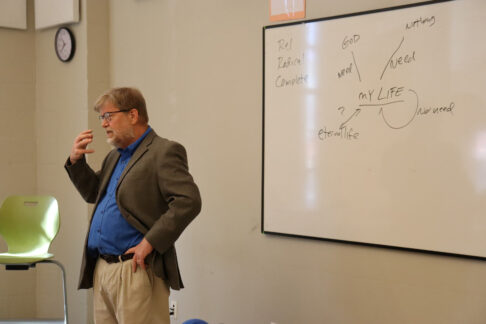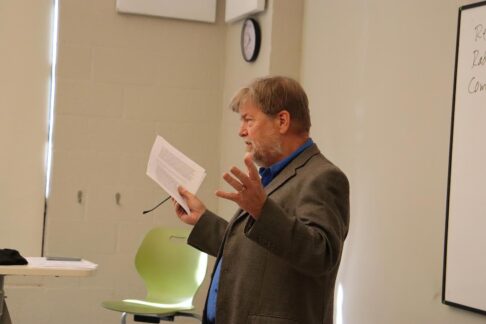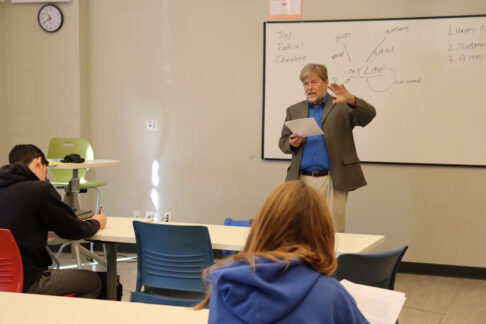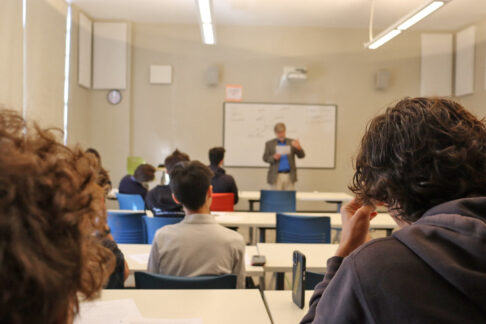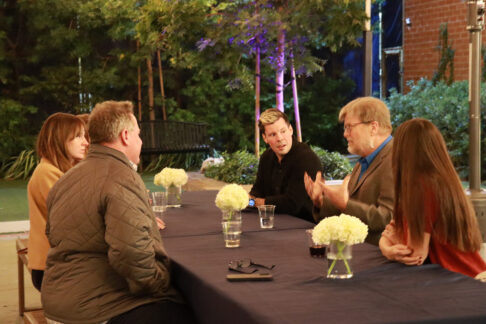Date: Friday, November 8, 2024
Dr. Ganssle engaged in an evening gathering with parents and acquaintances of Pacifica to discuss the concept of “Pedagogy of the Heart.” Drawing upon insights presented in his recent book, Our Deepest Desires: How the Christian Story Fulfills Human Aspirations, Dr. Ganssle emphasized the significance of connecting the religious beliefs of our students not solely to Christian worldview concerns, but also to their profound aspirations. He underscored the importance of demonstrating how the Christian narrative aligns with the students’ most cherished desires, thereby fostering a robust faith that can withstand challenges and doubts.
The Lyceum Seminar
Nietzsche’s Complete Nihilism
Dr. Greg Ganssle also spent the day engaging in a socratic-style seminar with a group of twenty Honors students from the Center of Philosophy and Theology. The topic of the discussion was Friedrich Nietzsche and the concept of nihilism. It is commonly asserted that Nietzsche held nihilistic beliefs. However, Dr. Ganssle contends that Nietzsche himself would not acknowledge this interpretation.
According to Dr. Ganssle, nihilism can be categorized into three distinct stages. The first stage is religious nihilism, which posits that life’s meaning necessitates an external justification, often provided by religious beliefs or ideological systems such as Marxism. These systems derive meaning from future ideals or deities. The second stage is radical nihilism, which asserts that no external source, divine or otherwise, can justify life. Consequently, radical nihilists believe that life lacks inherent meaning. Finally, complete nihilism transcends both stages by rejecting the requirement for external validation altogether. Nietzsche advocated for this self-created meaning, which is often referred to as complete nihilism.
During the seminar, students posed questions to Dr. Ganssle and critically examined Nietzsche’s perspective. Together they suggested that humans may lack the capacity to independently create their own values and that reliance on an external source of meaning, such as the Christian God, does not necessarily diminish human worth. Dr. Ganssle further proposed that grounding life’s meaning in a secure and relational framework with God could potentially enhance rather than diminish our value and purpose.
Speaker: Dr. Greg Ganssle
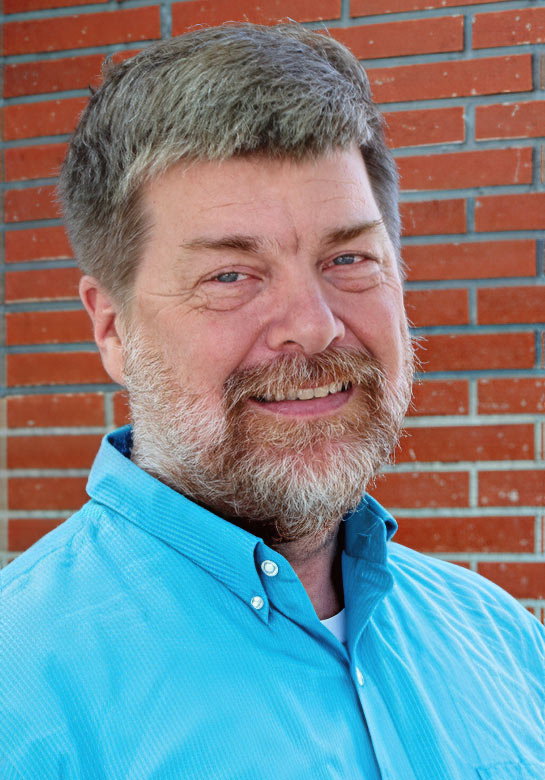
Greg Ganssle has been thinking about the intersection of Christian faith and contemporary scholarship for over thirty years. He began as an undergraduate by skipping his classes and reading C.S. Lewis. After graduating from the University of Maryland in 1978, he worked in campus ministry on a variety of campuses. Hundreds of conversations with students from a wide variety of religious and philosophical perspectives drove him to a sustained self-study program. Eventually it occurred to him that he was reading philosophy. Since he had escaped college without taking a philosophy course, he decided to begin with Philosophy 101 at the age of 25. Within weeks he was hooked. Continuing to juggle his full time campus ministry responsibilities, he earned a Master of Arts in Philosophy from the University of Rhode Island in 1990. He then went full time and earned his doctorate in philosophy from Syracuse University in 1995, where his dissertation on God’s relation to time won a Syracuse University Dissertation Award. In addition to publishing nearly three dozen articles, chapters and reviews, Greg has edited two books, God and Time: Four Views (IVP, 2001) and God and Time: Essays on the Divine Nature (Oxford, 2002 – with David M. Woodruff). Greg is also the author of Our Deepest Desires: How the Christian Story Fulfills Human Aspirations (IVP, 2017), Thinking about God: First Steps in Philosophy (IVP, 2004) and A Reasonable God: Engaging the New Face of Atheism (Baylor University Press, 2009). Greg was part-time lecturer in the philosophy department at Yale for nine years and a senior fellow at the Rivendell Institute at Yale. Greg’s research interests lie in contemporary philosophy of religion and history of philosophy. Greg has been married to Jeanie since 1985 and they have 3 children.
